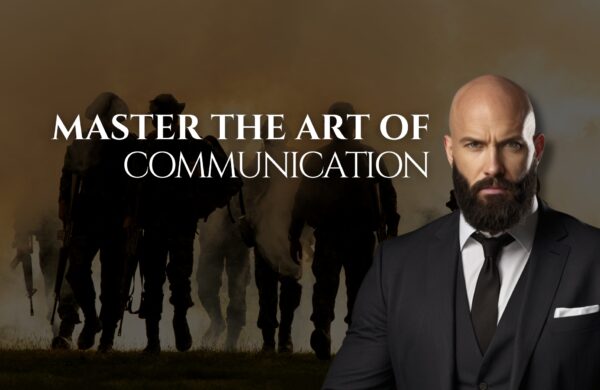Introduction: Why Friendships Are Vital for Men’s Health
Friendships are more than just casual connections—they’re the foundation of a healthy, balanced life. For men, in particular, friendships can fill gaps that partners or family relationships might not address, offering camaraderie, mutual support, and a sense of belonging.
However, building and maintaining these relationships is often neglected, overshadowed by career demands, family responsibilities, or societal norms that discourage vulnerability. This neglect comes at a cost: higher levels of loneliness, increased mental health challenges, and even physical health risks.
This article is your roadmap to overcoming these barriers and cultivating meaningful friendships that enhance your life. From understanding the importance of friendships to mastering the skills to form and nurture them, we’ll cover everything you need to know.
The Health Benefits of Strong Friendships
Mental Health
Friendships are a critical buffer against mental health issues. The mere act of sharing your thoughts and emotions with someone you trust can significantly reduce feelings of stress and anxiety. Men who have close friendships are less likely to suffer from depression, as they have people to turn to during difficult times.
Friendships also foster a sense of identity and belonging. They provide a space where men can drop the facade of societal expectations and simply be themselves. This authenticity contributes to emotional well-being, allowing men to process their emotions more effectively.
Physical Health
The benefits of friendships extend beyond the mind to the body. Strong social connections lower levels of cortisol, the stress hormone, which in turn reduces inflammation and the risk of chronic diseases like diabetes and hypertension.
Studies have also shown that men with strong friendships are more likely to engage in healthy behaviors, such as exercising, eating well, and avoiding harmful habits like smoking or excessive drinking. Friends can act as accountability partners, encouraging one another to make healthier choices.
Longevity and Quality of Life
Remarkably, having close friendships has been linked to increased longevity. A Harvard study found that men with meaningful relationships were not only happier but also healthier as they aged. The companionship and mutual support friendships offer can even mitigate the effects of aging, providing a sense of purpose and reducing the risk of cognitive decline.
Barriers to Forming Friendships
Cultural and Societal Expectations
Traditional masculinity often emphasizes traits like independence and self-reliance. While these qualities have their strengths, they can also isolate men from forming deep relationships. The stigma surrounding emotional openness and vulnerability can discourage men from seeking or offering support, making friendships seem less attainable.
Time Constraints
Modern life is busy. Between work, family responsibilities, and personal commitments, finding the time to nurture friendships can feel impossible. Many men deprioritize social connections, viewing them as optional rather than essential.
Fear of Rejection and Judgment
The fear of rejection looms large for many men. Reaching out to form a friendship or deepening an existing one requires vulnerability, which can feel risky. Concerns about being judged, misunderstood, or perceived as weak often hold men back from making the first move.
Life Transitions
Life changes, such as moving to a new city, switching jobs, or getting married, often disrupt social networks. These transitions can lead to a sense of isolation, making it harder to form new friendships or maintain old ones.
Strategies for Building Friendships
Start with Shared Interests
Shared activities are one of the easiest ways to bond with others. Whether it’s joining a local sports league, participating in a book club, or attending workshops, these settings provide natural opportunities to connect.
Consider hobbies you’ve always wanted to try, such as rock climbing, woodworking, or brewing craft beer. When you engage in something you’re passionate about, you’re likely to meet others who share similar interests, creating a solid foundation for friendship.
Leverage Technology
Social media platforms and apps can help bridge the gap when in-person connections are limited. Tools like Meetup, Bumble BFF, or local Facebook groups can connect you with like-minded individuals in your area.
Be Approachable and Open
Sometimes, the key to forming a friendship is as simple as starting a conversation. A friendly demeanor, good eye contact, and a willingness to engage make you more approachable.
Practice small talk and don’t be afraid to introduce yourself. While it may feel awkward at first, these small gestures can lead to meaningful relationships.
Take Initiative
Friendships don’t happen by accident—they require effort. If you meet someone you enjoy spending time with, take the initiative to follow up. Invite them for coffee, suggest an activity, or simply check in. Being proactive demonstrates your interest in building a connection.
Communication Skills That Foster Deeper Connections
Active Listening
Active listening involves more than just hearing words; it’s about understanding the message and emotions behind them. When you actively listen, you show that you value the other person’s perspective.
To practice active listening:
- Maintain eye contact.
- Avoid interrupting.
- Reflect back on what the person has said to confirm understanding.
Ask Meaningful Questions
Open-ended questions encourage deeper conversations. Instead of asking, “Did you have a good weekend?” try, “What was the highlight of your weekend?” This invites more thoughtful responses and helps you learn more about the other person.
Express Empathy and Validation
Empathy is the cornerstone of strong relationships. When a friend shares something difficult, avoid offering quick solutions. Instead, validate their feelings with statements like, “That sounds really challenging,” or “I can see why that would upset you.”
Share Your Own Experiences
Reciprocity is key in communication. When you share your own thoughts and experiences, it encourages the other person to do the same, deepening the connection.
Maintaining Friendships Over Time
Consistency Matters
Consistency is the glue that holds friendships together. Regular check-ins, even if brief, signal that you value the relationship.
Schedule regular catch-ups, whether it’s a monthly coffee date or a weekly call. Consistency fosters trust and strengthens bonds over time.
Celebrate Successes and Milestones
Take the time to acknowledge your friends’ achievements and important life events. Celebrating milestones together creates lasting memories and reinforces the relationship.
Navigate Challenges with Grace
Every friendship faces challenges. Miscommunications, disagreements, or periods of neglect can strain even the strongest bonds. Address issues openly and with empathy, focusing on preserving the friendship rather than assigning blame.
The Role of Vulnerability and Trust in Male Friendships
Vulnerability and trust are the bedrock of meaningful friendships. While opening up can feel risky, it’s essential for forging deeper connections.
Start small—share a personal story, admit a mistake, or express an emotion. Over time, these moments of vulnerability build trust, showing your friends that you’re authentic and approachable.
Identifying and Addressing Toxic Friendships
Toxic friendships can negatively impact your mental and emotional health. Recognizing these relationships and setting boundaries is essential for your well-being.
Signs of toxic friendships include:
- Constant negativity or criticism.
- One-sided dynamics where only one person benefits.
- Manipulative or controlling behavior.
When necessary, don’t hesitate to distance yourself. Ending toxic relationships frees up emotional energy for healthier connections.
Conclusion: Taking the First Step Toward Better Friendships
Building better friendships is a journey that starts with intentionality. While it may take time and effort, the rewards—improved health, happiness, and a stronger sense of belonging—are well worth it.
Take the first step today: reach out to a friend, join a new group, or practice being more open in your interactions. Each small action brings you closer to the meaningful connections you deserve.



